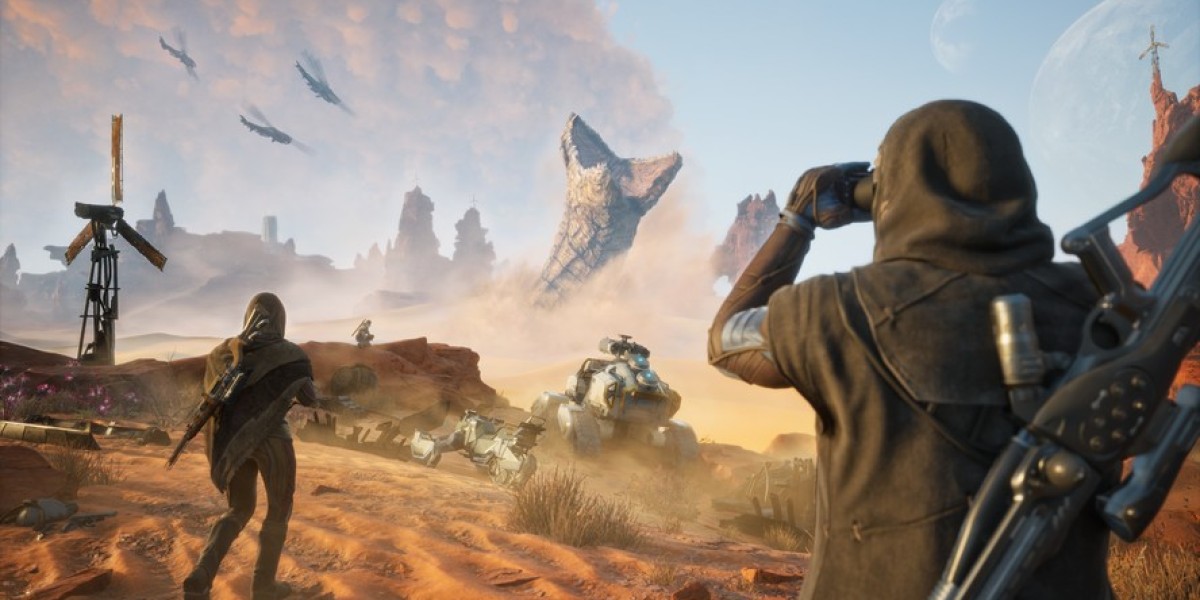In Dune Awakening Solari , spice isn’t just lore. It’s life. It’s power. And on a well-run private server, spice — and other key resources — can fuel a vibrant player-driven economy that adds depth, purpose, and political drama to your game world.
But good economies don’t build themselves. Without structure, markets crash. Without purpose, players hoard. Without balance, a few factions dominate and everyone else quits.
In this blog, we’ll break down how to build, sustain, and moderate a healthy in-game economy — from barter systems to faction trading to spice cartel dynamics.
? Why a Player-Driven Economy Matters
Even the best PvP or RP systems feel shallow if the world has no real value attached to its items and services.
A good economy adds:
Progression loops for non-combat players
Political leverage for traders and factions
Player-generated stories (trade routes, betrayals, taxes)
Tension over control of key resources (like spice fields or water sources)
The goal isn’t just to simulate capitalism. It’s to anchor your world in scarcity, power, and negotiation.
⚖️ Step 1: Choose Your Economic Model
There are three core ways servers usually handle economy:
1. Barter-Only (Immersive RP)
No currency — just item-for-item trades.
Great for hardcore survival/RP servers.
Slower but more immersive.
2. Item-Based Currency (Spice as Gold)
Treats spice as literal currency.
Requires secure ways to store and count spice (e.g., chests, tokens).
High lore-accuracy and easy for new players to understand.
3. Admin-Minted Currency (Tokens, Credits, etc.)
Server introduces a custom token (via Discord bot, mod, or rule system).
Enables banks, contracts, or taxes.
Requires oversight and balance.
Pro Tip: Even if you start barter-only, consider adding a standardized trade unit like "1 vial of refined spice = 10 credits" to speed things up.
?️ Step 2: Build a Central Market Hub
A market hub gives players a reason to travel, meet, and trade. It also acts as a neutral space for diplomacy (or drama).
Key Features of a Good Market Hub:
Neutral zone or demilitarized area
Stalls/booths for different players/factions
Bulletin board or Discord channel for offers/requests
Player-run shops or auctions
Market day events (weekly or bi-weekly)
Use game systems (e.g., item containers, lockboxes, NPCs) to facilitate safe, trustworthy trades. Or assign market moderators.
⚒️ Step 3: Define Crafting and Labor Roles
Not every player wants to fight. A good economy gives value to the producers, builders, and traders.
Examples of Player Jobs:
Spice Harvester (raw gatherer)
Water Merchant (controls wells or distillers)
Crafter (gear, weapons, building kits)
Engineer (vehicles, turrets, utilities)
Architect (sells building services or blueprints)
Diplomat/Trader (negotiates faction treaties, bulk spice contracts)
Create incentives for these players. For example, let builders advertise services at the hub, or give water barons power in faction votes.
?️ Step 4: Manage Faction Trade and Control Zones
Want big drama? Add zones of control and trade law.
Faction Control Features:
Tax gates (toll to cross spice regions)
Embargoes (banning trade with rivals)
Trade convoys (events where supply caravans need protection)
Black markets (for banned or rare tech)
Faction leaders can negotiate alliances, enforce tariffs, or raid competitor routes. This turns trade into a political weapon.
Admin Tip: Use map markers, Discord roles, or scheduled events to make trade zones dynamic and visible.
? Step 5: Encourage Player Stores and Contracts
Let players open real businesses.
Tools to Use:
Market stalls with private chests
Discord orders or listings
Player-led delivery services (escort missions, convoy RP)
Land ownership or rental systems
Blueprint licensing (e.g., "Only this crafter can make Mk2 pulse rifles")
Players who feel economically useful stay longer — even if they never win a single PvP fight.
? Step 6: Prevent Hoarding and Inflation
Too much spice or loot hoarded in vaults kills trade. People stop needing each other.
How to Keep Items Flowing:
Add decay to gear or storage capacity limits
Introduce regular events that drain resources (storms, taxes, sabotage)
Limit ultra-rare gear to faction quests or trade auctions
Encourage spending with prestige items (cosmetics, titles, rare vehicles)
Reward services over hoarding — pay builders, not just raiders
Also consider a seasonal wipe economy, where everything resets after 60–90 days. Players will trade more freely when they know nothing lasts forever.
? Step 7: Use Events to Spark Economic Activity
Trade should matter in your server narrative. Plan events that require the economy to react.
Examples:
Drought Crisis — water prices skyrocket
Spice Boom — a temporary field gives a boost (but is raided constantly)
Faction War — supply lines become battlegrounds
Merchant Guild Fair — limited-edition goods available
Pair this with weekly economy reports on Discord: prices, market updates, spice trade balance, etc.
? Step 8: Moderate the Market Fairly
Too much admin interference kills the economy — too little, and it becomes toxic.
Best Practices:
Don’t set prices — let the community do it.
Do enforce trade fairness (no scamming, price-fixing cartels).
Step in if one faction monopolizes a core item unfairly.
Appoint market moderators or neutral third parties for disputes.
Log major trades if needed (especially for PvP-sensitive resources).
Transparency is key. Players will accept rich traders if they feel the system is fair and open.
? Final Thoughts: Spice Must Flow — But at a Price
A private server without a working economy is just a sandbox. But a well-designed player market gives your world tension, diplomacy, ambition, and identity.
Whether your players are spice tycoons, smuggling guilds, or water barons, give them the Buy Dune Awakening Solari tools to shape the fate of Arrakis with their wallets, not just their guns.
In a desert world ruled by scarcity, the player who controls trade may never need to fire a shot.








